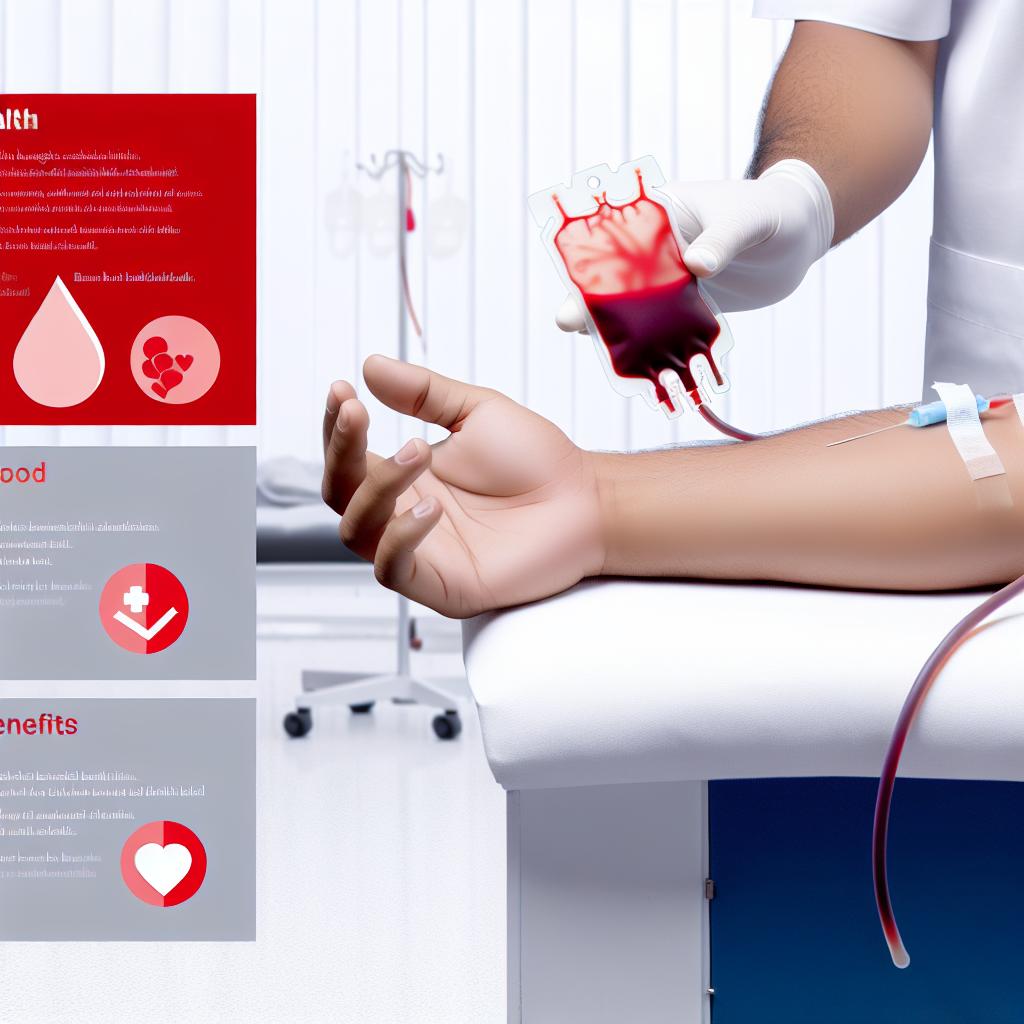The Health Benefits of Blood Donation
Blood donation is a critical activity for modern healthcare systems, providing a vital link in the treatment of various medical conditions. Beyond its communal benefit, donating blood has several health advantages for the donor.
Physical Health Benefits
Regular blood donation may contribute positively to your physical health in several ways. For one, it helps in maintaining proper iron levels in the body. Iron accumulation can lead to oxidative stress, which is linked to increased risks of cardiovascular diseases. By donating blood, individuals can help reduce excess iron, thereby maintaining a balance within the body.
The importance of maintaining a balanced iron level cannot be overstated. Iron is an essential mineral that plays a crucial role in red blood cell production and overall bodily functions. However, an excess can be harmful, potentially leading to conditions such as hemochromatosis, where the body absorbs too much iron from the diet. This condition can lead to various health issues, including liver damage and diabetes. Blood donation serves as a natural mechanism to regulate iron levels, potentially mitigating these risks.
Though the scientific community is still researching, some studies suggest that regular blood donation might be beneficial in reducing the risk of heart attacks. One theory posits that lower iron levels due to donating can minimize the risk of heart disease. The Centers for Disease Control and Prevention note that high iron levels can negatively impact cardiovascular health.
Another physical benefit of donating blood is improving blood flow. Health practitioners sometimes observe conditions where blood viscosity is higher than normal, which can increase the risk of clotting and other cardiovascular issues. Regular blood donation may assist in maintaining a healthier level of blood viscosity, thus promoting better circulation.
Additionally, blood donation provides a mini health check. Before donation, you undergo a series of tests that include checking pulse, blood pressure, and hemoglobin levels. This can serve as a way to spot potential health issues. These preliminary checks ensure that you’re healthy enough to donate, while also giving early warnings for possible health concerns, allowing for timely medical attention.
Psychological Benefits
The act of donating blood can have positive psychological effects. Knowing that you are helping others can lead to improved mental well-being. This is a type of altruism-induced mood enhancement, where the act of giving can spark feelings of joy and satisfaction, thereby reducing stress and potentially decreasing feelings of depression.
Altruistic behaviors, such as blood donation, provide a deep sense of personal fulfillment. Being part of a community initiative gives you a role in saving lives. This feeling of self-worth can translate into enhanced emotional health, promoting a positive outlook and a sense of connection with the broader community.
Moreover, the regular practice of donating blood can instill discipline, routine, and responsibility. As these traits develop, they can positively influence other areas of life, improving overall mental and emotional stability. This connectedness and stability are crucial components in combating feelings of loneliness and alienation, which are common in modern society.
Burning Calories
Although not a primary reason to donate, it is interesting to note that each donation session can burn up to 650 calories, according to certain organizations involved in blood donation. This is equivalent to a light workout and can contribute to a healthy lifestyle.
Calorie burning, through the processes involved in regenerating blood cells and restoring blood volume, highlights an additional health aspect of blood donation. While this should not be the sole purpose for donating, it does complement a lifestyle geared towards fitness and health consciousness. Combined with regular physical exercise and a balanced diet, this can help maintain not just cardiovascular health, but general well-being.
Conclusion
In summary, blood donation is not only an act of kindness but also comes with numerous potential health benefits for the donor. From maintaining proper iron levels to offering psychological benefits, regular blood donation can be a straightforward way to contribute positively to your own health and the well-being of others.
Blood donation helps in managing health parameters that might otherwise be overlooked in the hustle and bustle of daily life. Whether it is keeping an eye on your vital signs during the initial screening process or managing iron levels, the benefits can seamlessly integrate into a broader health-conscious lifestyle.
Furthermore, the psychological rewards associated with altruism provide an emotional lift that complements the physical advantages. This ensures that each donation contributes not only to external lives but enriches the donor’s own life in subtle, significant ways.
Incorporating blood donation into your routine can foster a sense of community participation and personal health accountability. Consider making it a consistent part of your healthcare routine for both personal and communal benefits. Repeated commitment not only affirms one’s dedication to community well-being but simultaneously cultivates an enduring legacy of health and compassion.
